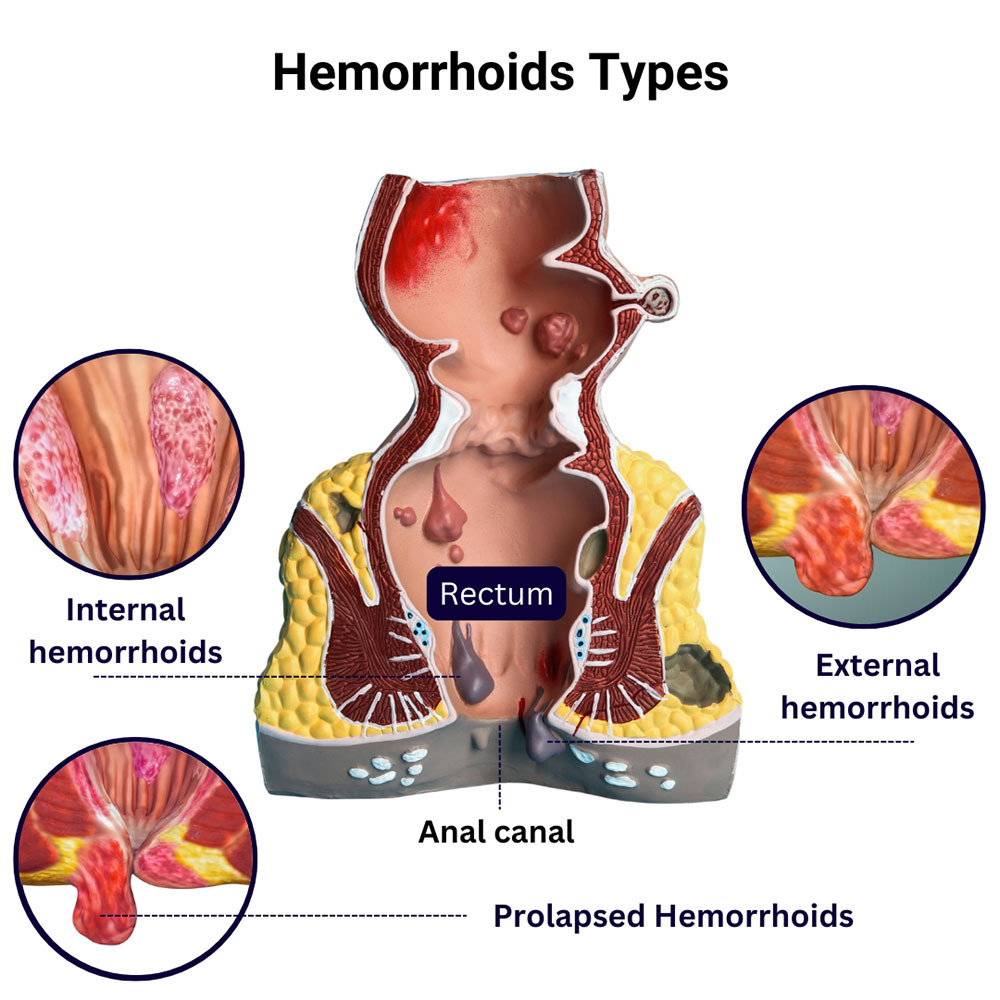
When hemorrhoids cause you pain, you can’t wait for them to disappear. And if they get infected or thrombosed, the consequences can become severe. Don’t wait to see if your hemorrhoids go away on their own. Don’t rely on over-the-counter creams to resolve your piles. The more severe your hemorrhoid symptoms, the longer the condition may last. Call the experts at a renowned vein clinic in Brooklyn — Astra Vein & Fibroid Treatment Center — for the most appropriate care to get rid of your hemorrhoids fast.
Often referred to as piles, hemorrhoids are swollen veins in your lower rectum and around your anus. They’re similar to varicose veins, which occur when the walls of blood vessels become swollen. Although common and usually harmless, hemorrhoids can become painful if left untreated.
The three types of hemorrhoids include:
Severe or chronic hemorrhoids can result from a low-fiber diet, obesity, advanced age, chronic constipation or diarrhea. Straining during bowel movements or sitting for a long time on the toilet increases the pressure on your anal veins, putting you at further risk.
Whether you’re looking to get rid of hemorrhoids fast or find varicose vein treatment, visit Astra Vein & Fibroid Treatment Center and their top-rated vein specialists in Brooklyn provide advanced solutions like hemorrhoid embolization and fibroid treatments.

The duration of your hemorrhoids varies, depending on their severity, which is determined by a hemorrhoid grading system. Getting early treatment helps, but some cases need medical attention. Healthy habits speed up the process of recovery and keep piles from returning.
Hemorrhoids typically last from a few days to several weeks, but the duration depends on the severity, including:
If your hemorrhoids become painful, your condition is worsening and needs treatment. Pay attention to how often and how much you bleed during a bowel movement. The presence of black or red stools often points to gastrointestinal bleeding, which represents a more dangerous underlying condition. If your symptoms persist, consult with your vascular specialist in Brooklyn, NY.
Hemorrhoids after childbirth last a few days to a few weeks, depending on their severity and other factors. Pregnancy puts stress on your pelvic veins, reducing the blood flow and increasing the swelling that causes hemorrhoids. Hormonal changes during pregnancy lead to constipation, which increases your risk of hemorrhoids. You may also get hemorrhoids one-to-two days after your delivery. Childbirth significantly increases your risk of hemorrhoids.
After childbirth, contributing factors include:
During pregnancy, treat your hemorrhoids with home remedies at first. Take warm sitz baths to relieve discomfort, use cold compresses to relieve swelling, eat high fiber food and take stool softeners. Stay hydrated and exercise gently to promote bowel regularity and reduce your hemorrhoid symptoms.
Your hemorrhoid treatment varies with their type and severity. The physicians at Astra Vein & Fibroid Treatment Center, experienced in hemorrhoid cures, examine you before recommending an appropriate treatment.
Treatment options include:
If you’re not sure what kind of doctor treats hemorrhoids, visit Dr. George Bolotin and his team at their vein clinic in Brooklyn. They provide consultations to address all your concerns. With years of experience dealing with hemorrhoids for patients all over NYC, they make sure your symptoms don’t last long. Contact Astra Vein & Fibroid Treatment Center in Brooklyn, NY. These medical professionals also treat other vein conditions, including:
Vein & Vascular Medical Care
4209 Ave U, Suite A.
Brooklyn, NY 11234
(347) 934-9068
Vein & Vascular Medical Care
869 E Tremont Ave
Bronx, NY 10460
(929) 447-4563